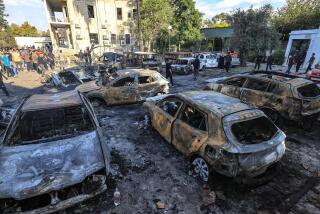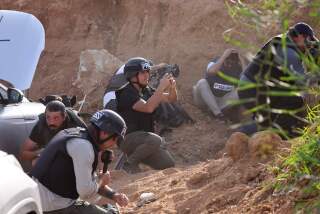The Pentagon Plan to Contain the Press : Truth will be the casualty of restrictions on coverage of gulf hostilities
- Share via
The most revealing question that anyone in gold braid can ask a correspondent as Americans prepare for combat in the Persian Gulf is: “Whose side are you on?” For a free and democratic society, it is not only revealing but potentially destructive.
It is revealing because governments over centuries have assumed a right to shield their citizens from the truth from the battle front if it was bad news that would hurt morale. Bad news was written by the wrong side. Over time, a few commanders exercised this right of suppression by withholding rations from pesky reporters who persisted in talking directly to soldiers or, in some perhaps apocryphal cases, firing in their direction if they got too close to the action.
The animosity of the military is potentially destructive because the effort to control the flow of information about combat fails most of the time. Even when it works, it tends to create an eventual backlash. Britons learned much too late the truth that government suppressed about their staggering losses in World War I and government credibility never recovered. It took Americans much too long to discover what was happening in Vietnam, and trust in government has gone down steadily ever since.
Press controls in effect in the Persian Gulf are not as crude as starvation or warning shots, but they can cut the flow of information to Americans.
If war breaks out, correspondents would have to submit material for security review. They could not roam the battlefield in search of information, but would travel in pools with military escorts.
Their stories would not necessarily be censored, but if the first level of “security reviewers” thought they contained information of value to the enemy, they could keep pushing the issue to higher levels of authority for second or third opinions. In an organization that is notorious for losing documents, some combat reports might just disappear.
War reports are like war itself. Some describe moments so quiet there is nothing to hear but heartbeats. Others cover tempests of thunder and violence so random, unpredictable and pervasive that two people seldom can remember them the same way. “Security review” practiced at several removes from the action cannot possibly confirm or deny a report, only stifle it.
Rudyard Kipling had it right when he wrote, “. . . there are more things told than are true, and more things true than are told.” Washington should revise the plan.
More to Read
Sign up for Essential California
The most important California stories and recommendations in your inbox every morning.
You may occasionally receive promotional content from the Los Angeles Times.













